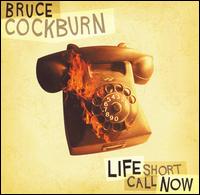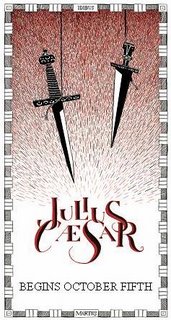In a season of record lows for political campaigning, manipulation and mud-slinging, we've reached depths this week previously
un-dreamt-of. I can't figure out which is my favorite: Michael J. Fox's insinuation that Republicans don't care about disease or the escalating shenanigans in the Webb-Allen race that have Virginia smelling like a fresh pile of manure. Never in my life did I think it would be so transparently easy to defend Rush Limbaugh.
In case you live under a rock in a cave on the Moon, here's a recap: Michael J. Fox, exhibiting extreme side-effects from Parkinson's disease, has appeared in a
political ad for Missouri Democrat Claire
McCaskill that is making the rounds on
YouTube. The core message: Fox shares
McCaskill's "hope for cures," as opposed to Republican Jim Talent, who "opposes stem cell research." (
Bad Jim Talent!
Bad!) According to Fox, that unconscionable bastard Talent even "wanted to criminalize the science that gives us a chance for hope." The ad has inspired international debate, much of it focusing on the fact that Rush Limbaugh had the gall to challenge the facts of the ad as well as the extremity of Fox's apparent symptoms.
Two facts need to be stated right here and now.
One: Limbaugh apologized on-air less than five minutes after suggesting that Fox might be exaggerating his symptoms. (I dare you to find me a news outlet that's reporting that.) He apologized again the next day after Fox clarified that his uncontrollable movements were a result of
dyskinesia, a common side-effect of Parkinson's medication. (Try to find that on CNN.com.) He also devoted much of the rest of the week to learning about Parkinson's disease and passing the information on to his listeners.
Two: Fox has admitted in his book and on television with Diane Sawyer that
he has, in the past, intentionally over- or under-medicated himself to increase his symptoms for theatrical effect. He most famously did this in 1999 before--surprise surprise--testifying before the U.S. Senate on the subject of embryonic stem cell research. So perhaps Limbaugh needn't have apologized for suggesting that Fox may have done something that he has a track record of actually doing.
This may be the single most repugnant moment in decades of American politics, and it's
exactly what Ann
Coulter got in so much trouble for attacking a few months ago. The strategy of using ultra-sympathetic figures such as Michael J. Fox, 9/11 widows, and Cindy
Sheehan to place a party's issues above criticism is disingenuous at best and diabolical at worst. Hey there, Claire: Are your ideas so bankrupt that you have to trot out a sick celebrity to shill for you? After all, no one gets to tell a vulnerable, sick man that he's wrong; that would be cruel and insensitive. No one gets to accuse Marty
McFly of being a liar, right? Only a monstrously evil conservative would do such a thing. This isn't as new as it seems; John Edwards assured voters that if John Kerry was elected President Christopher Reeve would walk again. I wish I was joking.
I love Michael J. Fox. I love his work as an actor;
Back to the Future and
Family Ties were big parts of my young life. And I greatly respect the progress his foundation has made. But I am completely disgusted by his appearance in this ad, and I can't imagine spending money on his films any time soon.
So let's put the manipulative emotional appeal aside and look at the facts for a minute. First of all, there is
no evidence that embryonic stem cell research holds the key to curing Parkinson's or paralysis, only speculation. Secondly, other approaches, such as adult stem cell research, have yielded very promising results. In fact, Fox's foundation has spent $1.9 million pioneering a new
gene therapy treatment at a Chicago hospital that may reduce Parkinson's symptoms by as much as 40%. Thirdly, the science that Jim Talent wants to "criminalize" is not stem cell research at all: it's human cloning, which is illegal almost everywhere in the world.
But that's not the message of the ad. The message of the ad is this: Only Democrats care about disease. Only Democrats care about Parkinson's and
Alzheimer's and spinal paralysis. Republicans don't care if you get hurt or sick or die. Talent isn't just against hope, he's against even "a chance for hope." Only Democrats offer you hope. A vote for the left is a vote for hope!
"Disingenuous" is too small a word. "Reprehensible" is getting warmer. "Completely and utterly disgusting" is four words, but it will have to do.
Isn't disease something we can all agree that
everybody is against? Are we so convinced that the American people are a race of drooling couch potatoes that we don't even
TRY to win elections based on the value of our plans and ideas any more? Do we not see that the more we cater to the lowest common
denominator in this most crucial of social interactions, the more the bar descends? Television isn't rotting this country's mind away, our duly elected leaders are.
There's another way to look at the real message of this ad: by following the money trail. A wealthy husband and wife have provided 97% of the funds supporting the stem cell research proposal in Missouri. James and Virginia
Stowers, both cancer survivors, have contributed $25.5 million to the cause. Their
Stowers Institute for Medical Research is a Kansas City non-profit organization seeking to prevent and cure diseases through gene research. An admirable goal. However, it should be noted that the $25.5 million they have spent on this political campaign is $1.5 million more than Great Britain has spent on Parkinson's disease research since 2004. I have to say, using $25.5 million that could have been spent on research grants to get a Constitutional amendment passed sounds far more like a political or financial stake than medical research to me.
This is not about legalizing or criminalizing embryonic stem cell research, which is legal and ongoing. It's about assigning Federal funding to lines of research that private investors won't touch because they would rather put their money in other areas which have shown promise and verifiable results. In other words, the private sector, responsible for almost every significant medical advance of the past century, isn't terribly interested in embryonic stem cell research because they have very little reason to believe it will yield any results.
Capping it all is Fox's insistence this week that he thinks the issue of research funding should be "bipartisan." He said, "You know what? I don't really care about politics."
REALLY? Then why are you only coming out making commercials in an election year, and only for Democrats? If you're going to lie to me, Mr. Fox, at least come up with something remotely plausible.
And finally: Here in Virginia, we have the choice of all choices:
Vote for Republican George "
Macaca" Allen, who may or may not have used the N-word thirty years ago, or Democrat James Webb, who wrote novels including sexually explicit material involving
under-aged sex, talented strippers (if you don't already know, you don't want to), and a father placing his son's member in his mouth, as well as suggesting in writing several years ago that women entered the Naval Academy to have easy access to multiple male sex partners.
What shall we do? Vote for the racist or the sexist?
Wait, you mean there's more to the election than that? These guys have stances on actual
issues that could affect my life?
You could have fooled me.
Labels: opinion, politics, television


 So imagine my complete and utter surprise upon listening to Life Short Call Now, an album that manages to show us several new levels of innovation and creativity from Cockburn while remaining reminiscent of the tenderness of distant memories Further Adventures Of and Humans. Gone is the stridency and harshness of You've Never Seen Everything (an album that I find very difficult to enjoy, despite its containing two of my favorite Cockburn songs ever, "Open" and "Put It In Your Heart"). In its place is some of Bruce's most gentle, understated, and soulful songwriting ever, backed by horns and a 27-piece string section, creating--dare I say it?--a music we have never heard from Cockburn before.
So imagine my complete and utter surprise upon listening to Life Short Call Now, an album that manages to show us several new levels of innovation and creativity from Cockburn while remaining reminiscent of the tenderness of distant memories Further Adventures Of and Humans. Gone is the stridency and harshness of You've Never Seen Everything (an album that I find very difficult to enjoy, despite its containing two of my favorite Cockburn songs ever, "Open" and "Put It In Your Heart"). In its place is some of Bruce's most gentle, understated, and soulful songwriting ever, backed by horns and a 27-piece string section, creating--dare I say it?--a music we have never heard from Cockburn before. The Richmond Shakespeare Theatre opens our second downdown season with the original political thriller, Shakespeare's Julius Caesar. Come out and see a cast of five actors take on approximately 45 roles.
The Richmond Shakespeare Theatre opens our second downdown season with the original political thriller, Shakespeare's Julius Caesar. Come out and see a cast of five actors take on approximately 45 roles.